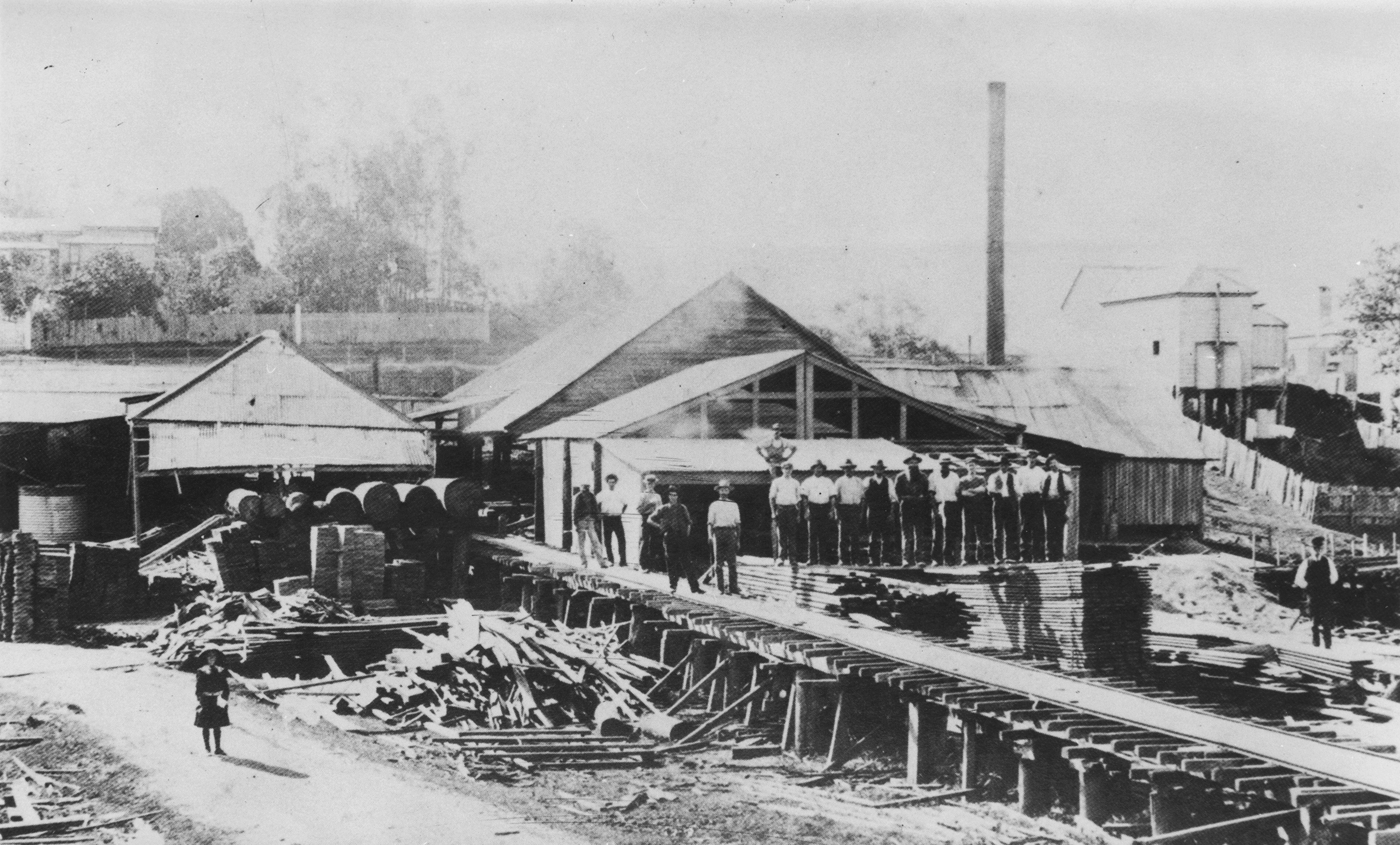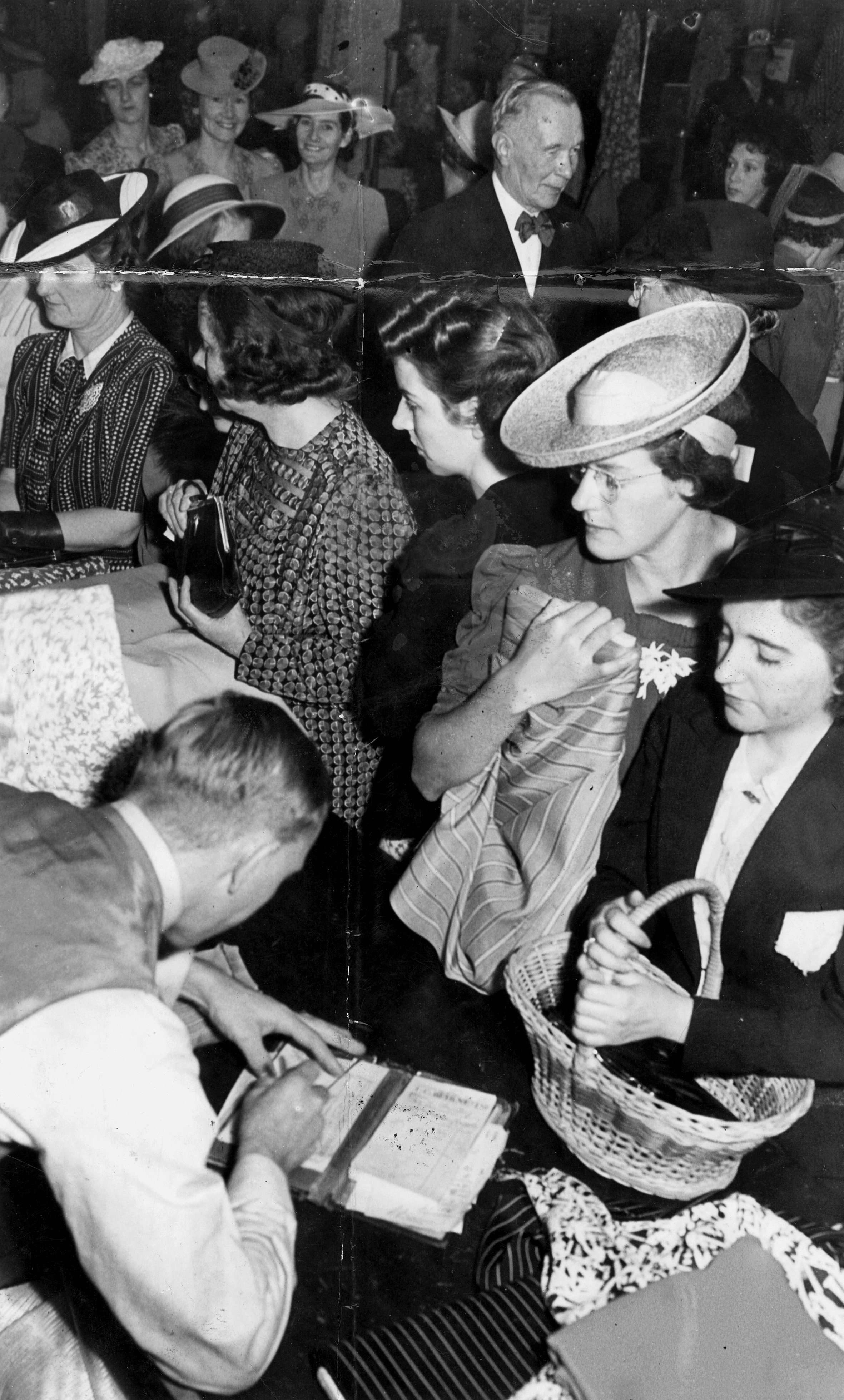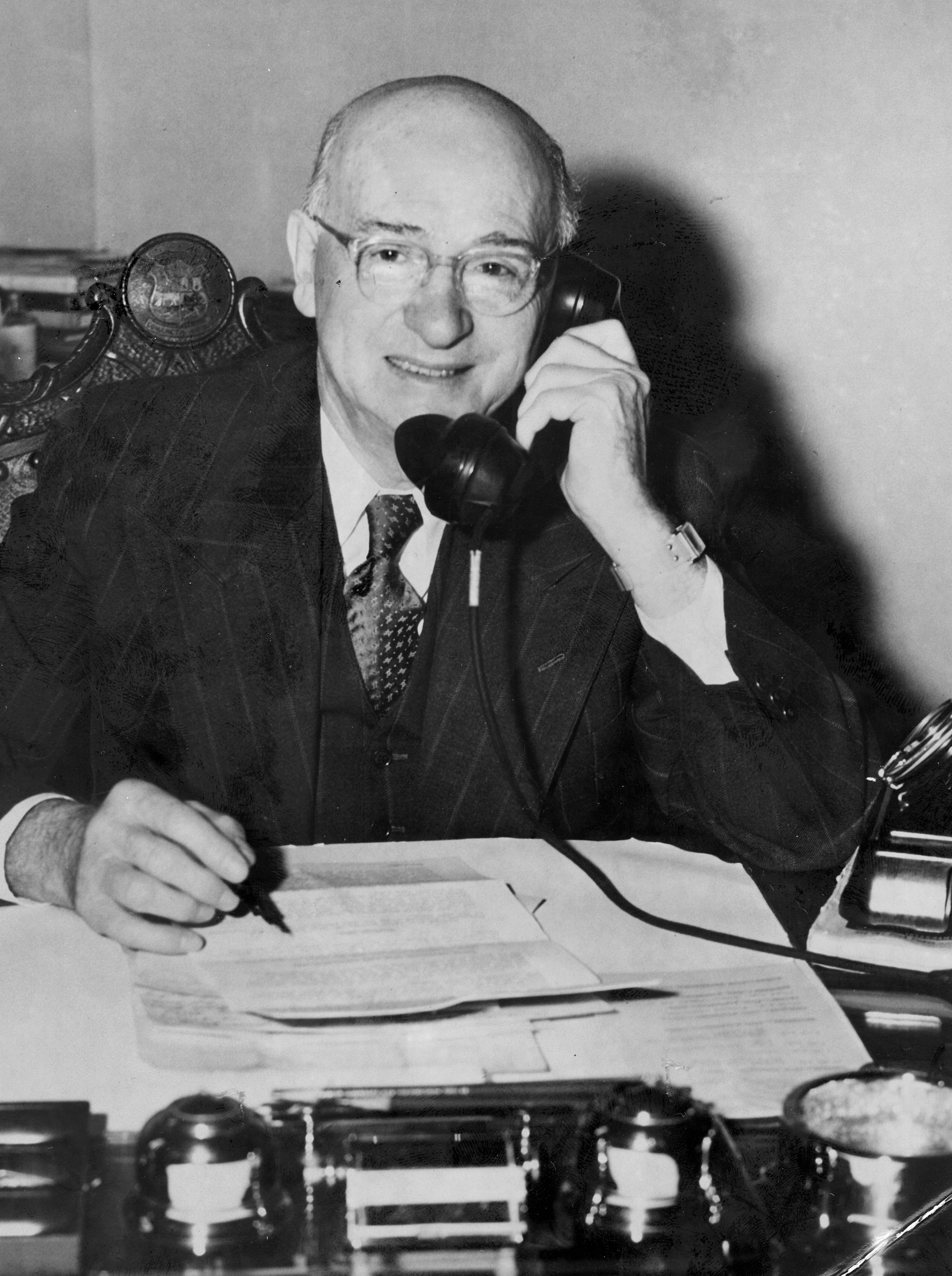The Queensland Business Leaders Hall of Fame has revealed its 2021 inductees, saluting their resilience and innovation at a gala black-tie event in Brisbane last night.
More than 800 guests, representing commerce, community, academia, arts and politics, gathered at the Brisbane Convention and Exhibition Centre to celebrate the announcement of the six 'Class of 2021' inductees.
Now in its 12th year, the Queensland Business Leaders Hall of Fame was established by the QUT Business School, State Library of Queensland and Queensland Library Foundation to recognise outstanding contributions made by business leaders and businesses to the state's economic and social development.
Four companies and two individual leaders were inducted last night.
Finlayson's Timber & Hardware, founded in 1875 by a Scottish immigrant as one of Queensland's first sawmills, was inducted alongside TC Beirne & Co which started as a rundown grocery store and grew to a retail empire.
Individual honours were given to Harvey Norman CEO Katie Page-Harvey, who grew up in regional Queensland and now runs a company employing 20,000 people around the globe, and the late Sir John Chandler, a former Brisbane Lord Mayor who founded radio stations 4BC and 4BH along with the home appliance retail chain which carried his name for decades.
From a single coffee shop in Eagle St, Brisbane in 1989 to almost 500 stores in 13 countries, The Coffee Club is now one of Australia's largest café chains.
Similarly, from one cattle station near Roma in 1968, Australian Country Choice has evolved under the Lee family to become one of the biggest landholders and beef producers in the country.
After the unveiling, Hall of Fame Chairman Ken MacDonald said the 12th year of the awards demonstrated the diversity, resilience, and imagination of Queensland businesses and business leaders.
"This year, we have inducted some household names from the past in TC Beirne and Sir John Chandler, as well as power houses of the present through Katie Page-Harvey, the Coffee Club and Australian Country Choice, and one other business, Finalyson's, that spans the lot after it started back in 1875," said Hall of Fame Chairman Ken MacDonald.
"We are proud to acknowledge these home-grown Queensland businesses in our comeback year for the Hall of Fame from a 2020 lost to the COVID-19 pandemic."
Inductees are assessed and selected by the Queensland Business Leaders Hall of Fame Governing Committee, who look at criteria including leadership, financial contributions, and pioneering achievements.
2021 Queensland Business Leaders Hall of Fame Inductees:
Finlayson's Timber and Hardware
In recognition of outstanding contributions to Queensland's timber and building industries and internationally recognised product innovation.

Photo courtesy of State Library of Queensland.
After emigrating from Scotland in 1870, Charles Patterson and two brothers established the family's first sawmill in the Indooroopilly area in 1875.
Patterson Brothers, as it was then named, specialised in milling local timbers for structural and decorative use in the building of archetypal ''Queenslander'' houses, contributing greatly to the rapid expansion of Brisbane's suburbs.
By 1884, and under the sole control of Charles Patterson, the business relocated to Toowong where it was to be a landmark for nearly a century. The first of many fires and other natural disasters to confront the business, all but obliterated the Toowong mill in 1888.
With remarkable resilience that was to be demonstrated time and again over the next 130 years, most recently following 2011 floods, many damaged mills were immediately rebuilt and improved.
Charles Patterson through his business leadership, extensive community service including several terms as Mayor of Toowong, and his unstinting support for the Presbyterian Church, infused the business with a character that remains central to Finlayson's today.
In 1961, Malcolm Finlayson, a grandson of Charles Patterson and long-term employee of the business became a director before becoming managing director in 1979.
Together with his experienced fellow shareholders who had acquired the business, Malcolm, a giant of the Queensland timber industry, was able to convert a moderately successful family business into an industry leader. The business invested heavily in technology to underpin its manufacturing operations while leveraging its reputation and loyal customer base.
The Finlayson family took full control of the business in 1998 with Malcolm as managing director and sons Skene and Michael as co-directors. With its focus on milling and moulding sustainably sourced Queensland hoop pine, the company has developed an outstanding reputation for its colonial woodwork, mouldings, and joinery.
Now, in its fourth generation as a Queensland business, Finlayson's employs more than 300 staff in Queensland and New South Wales and is a significant timber exporter and industry leader.
TC Beirne and Co
In recognition of pioneering forward-thinking leadership and significant achievements in retailing, community service and philanthropy.

in Brisbane during World War II.
Image courtesy of State Library of Queensland.
Born in Ireland in 1860, Thomas Charles Beirne realised at an early age that he would have to look abroad in search of opportunities. With a drapery apprenticeship under his belt, his desire for adventure and drive to succeed led him to Australia at the age of 23. After a short stint in Melbourne, T.C. accepted an opportunity to become a joint partner in Piggott and Beirne in South Brisbane in 1886.
The partnership prospered and when dissolved a few years later, T.C. departed with £1200 capital which he invested in what was to become his iconic Fortitude Valley business. Other stores later followed.
For the next 70 years T.C. Beirne's department store business flourished, generating a profit every year, surviving two depressions and two world wars. During World War II the business handled more than 30 million government issued coupons. At its peak, the business served nearly 3.5 million customers in one year alone.
T.C. Beirne had established itself as a retailer of choice throughout Queensland, aided by its widely supported catalogue business, competitive pricing and advanced product range. Ever the entrepreneur and retail visionary, T.C. Beirne's extensive overseas travel enabled him to incorporate the latest thinking into his product range and store layouts. He was ahead of his time as an employer and his fairness through staff initiatives such as generous superannuation schemes generated fierce loyalty.
In building Queensland's leading department store, the 'grand old man of the Valley' became one of Australia's first millionaires and his generous philanthropy created lasting community legacies. His early awareness that special opportunities were awaiting him in the world, together with his deep Catholic faith, imbued in him a guiding confidence and integrity which underpinned much of his success.
T.C. Beirne worked in the business until his late 80s, with the same indefatigable energy and optimism that he enjoyed as a young man. After 70 years in private ownership, the business was acquired by David Jones in 1961.
The Coffee Club
In recognition of its successful development from Australia's leading coffee retail business into a major, thriving international brand through sustained entrepreneurship.
It was an evening in 1989 when Emmanuel Drivas and Emmanuel Kokoris, in search of a late-night coffee, first identified the opportunity from which the iconic Coffee Club chain was to emerge. Unable to find a good brew and welcoming setting in Brisbane's CBD, they soon after formed a partnership to open their first outlet on the Eagle Street Pier overlooking the Brisbane River. It was to be a place where people could meet, spend time and enjoy company as it is today, more than 30 years later.
Their partnership brought together the meticulous operational skills of Kokoris and Drivas' entrepreneurship and retailing talents. Their aim in establishing The Coffee Club was to replicate the style, décor, and ambiance of the noted European coffee houses while paying attention to excellent coffee and a wide menu. John Lazarou joined the partnership soon after, bringing his exceptional people skills and marketing flair.
Remarkably, the three partners, all sons of post-World War II Greek migrants, and all from Brisbane's West End, shared a common introduction to the world of business. Leaving school in their mid-teens and working hard, they learned on the job, the keys to building a successful business.
As growth began to reach the limits of self-financing, franchising became the means for super-charging further expansion throughout the country. Consistently delivering on the brand promise of good food, great service and excellent coffee was crucial so that 'The Coffee Club' became the answer to the question 'Where Will I Meet You?'
The Greek concept of Philoxenia 'being a friend to the stranger' became the entrenched philosophy of Coffee Club hospitality. Extensive philanthropy and generous community support are other distinguishing characteristics of The Coffee Club business and the three original partners.
The acquisition of 50 per cent of The Coffee Club business, now 70 per cent, by Minor DKL, a major international hospitality and leisure company enabled the business to grow to nearly 500 outlets in 13 countries while drawing on the passion and continued involvement of the original founders.
Australian Country Choice
In recognition of visionary leadership in establishing the largest privately-owned vertically integrated beef and cattle business in the world.
Commencing in the 1950s as an earthworks and civil construction company under Henry and Norm Lee – the Lee Family began land and cattle operations in Roma in 1968 as Leeson Pty Ltd and became Australian Country Choice in the 1990s, spring boarding its growth into today's significant beef business.
Under the visionary leadership of Trevor Lee, ACC runs up to 300,000 head of cattle across 40 properties, covering 2.4 million hectares with a meat processing centre at Cannon Hill capable of handling 400,000 head each year (representing 120 million carcass kilograms). Additionally, ACC's value-adding facility is the largest and the most modern in Australia, enabling more than 50 million kilograms of cut and packed fresh meat products to be delivered each year.
Now, in its third generation, ACC is the world's largest family-owned vertically integrated cattle and beef supply chain organisation, with a feedlots capacity of 70,000 cattle.
David Foote, regarded as one of the most experienced beef and cattlemen in Australia, and until recently company Group Managing Director, has made a major contribution since he joined Trevor in 1999 when there were just two feedlots, two owned and several agistment cattle properties. This formidable combination has driven the extraordinary growth of the business over the last two decades. Other major contributions to ACC's success are its demonstrated commitment to ethical trading, achieving industry best practice in environmental sustainability and animal welfare.
As a respected employer of around 1500 workers, safety in the workplace, loyalty, and personal responsibility are long-standing core company values.
Having recently ended its 46-year partnership with Coles, ACC is looking to the future with a new strategic vision under which 40 per cent of output will be targeted for export, 40 per cent for the domestic market under a new supplier agreement and 20 per cent to be processed, packed and marketed under ACC's own brands.
With Anthony Lee now having assumed the CEO role, Michael Lee, a director and senior company executive, together with the continuing contributions of Trevor Lee and Keri Craig-Lee, ACC is positioned to continue thriving as an outstanding, third generation Queensland family business.
Katie Page-Harvey
In recognition of sustained contributions to national and international business expansion, leadership excellence and distinguished service to the community.
Born in Mareeba in 1956, Katie Page-Harvey started school in St George in southwest Queensland before attending Brisbane State High School which fostered in her a belief she could do anything; a belief that has never left her.
Katie set out to become a surveyor, however opportunities for women at the time were nonexistent. With a steely resolve, she left for Sydney in pursuit of other career avenues. At the age of 26, she joined Gerry Harvey at his only store with an open brief to contribute her skills to the growth of the business.
Within five years, Katie had been appointed to the board and had taken control of the furniture division while overseeing new store fit outs. If there's a defining characteristic that underpins Katie's success and that of Harvey Norman, it's the feel for retail.
In less than 40 years, Harvey Norman has grown more than 100 times from a single store with annual turnover of $3 million into an integrated retail, franchise, property and digital business. Today, operating in eight countries with close to 300 stores, around 540 franchisees, the business turns over nearly $8.5 billion and generates close to $1 billion in earnings.
Katie's contribution as the long-term CEO to this growth and success is truly remarkable. Her widely acknowledged talents for trend spotting and trend setting have been pivotal factors as has her vision and tenacity in developing the offshore operations which now contribute nearly one quarter of the company's profits.
Katie has also built the Magic Millions into a world class thoroughbred sales company, in the process significantly boosting the Gold Coast's tourism and international reputation. She has been an inspirational contributor to the development and growth of women's sport in Australia.
Sir John Chandler (1887-1962)
In recognition of significant contributions to retail and radio broadcasting networks in Queensland and exceptional community service.

at his desk in September 1951.
Image courtesy of State Library of Queensland.
Sir John Beals Chandler arrived in Australia in 1907 as a near penniless 20-year-old English immigrant. Eking a meagre living cutting cane in Mossman, North Queensland, he saved a small amount of capital, allowing him to put his entrepreneurial flair to work.
First opening a Brisbane hardware store in 1913, he graduated to selling radios and radio parts to ride the wave of progress that flowed from the availability of electricity and rapid take-up of radios in the early 20th century. The business was further propelled by the formation of a hire-purchase business in 1932 to make his products more affordable to the wider public during the Depression.
To help promote is retail operation, in 1930 Sir John established Brisbane's first commercial radio station, 4BC. It proved a strategic masterstroke and was the forerunner of a major radio empire including the State's top station 4BH together with a chain of country stations. As they flourished, due in large part to Chandler's programming innovation, so too did his retail sales. Franchises for iconic brands such as Sunbeam, AWA, and Radiola followed on the back of retail success and the promotional power of the radio network.
The AWA agency facilitated another opportunity when, during World War II, Chandlers in partnership with AWA installed and serviced radio, radar, and echo-sounding equipment on allied and Australian ships. Chandler's stores grew to 25 across Queensland and Northern New South Wales following the war.
Following Sir John's death in 1962, the family-controlled business continued to thrive under the leadership of his son Frank, before being sold in 1977 to cover Queensland death duties following Frank's death. Despite the extent of Sir John's commercial activities and even at their height, he served with distinction as Brisbane's Lord Mayor from 1940-1952. He was also a Member of the Legislative Assembly from 1943-1947.






